
The first thing Carlos Armando Martínez and his fellow members of the Great Nicoya party say after seeing his party’s name in the news is how proud they are of having dethroned the traditional National Liberation Party. “We are happy because it was like David versus Goliath,” they say.
I’m really glad we broke away from political traditionalism and appreciative of everyone who confided in our experiment,” a teary-eyed Martínez said during the celebration after initial results came in at the Recaredo Briceño park.
The National Liberation Party (PLN) lost for the first time in the party’s history in Nicoya, the only canton in Guanacaste it has always won in city elections. The Great Nicoya party, with Martínez as mayor, is the first local party to reach city hall in the canton with more than 4,600 votes, in a canton where 42,477 people vote.
Jennifer Arnáez came in second place with some 3,000 votes, according to the latest count from the election authority, with more than 90% of the vote counted.
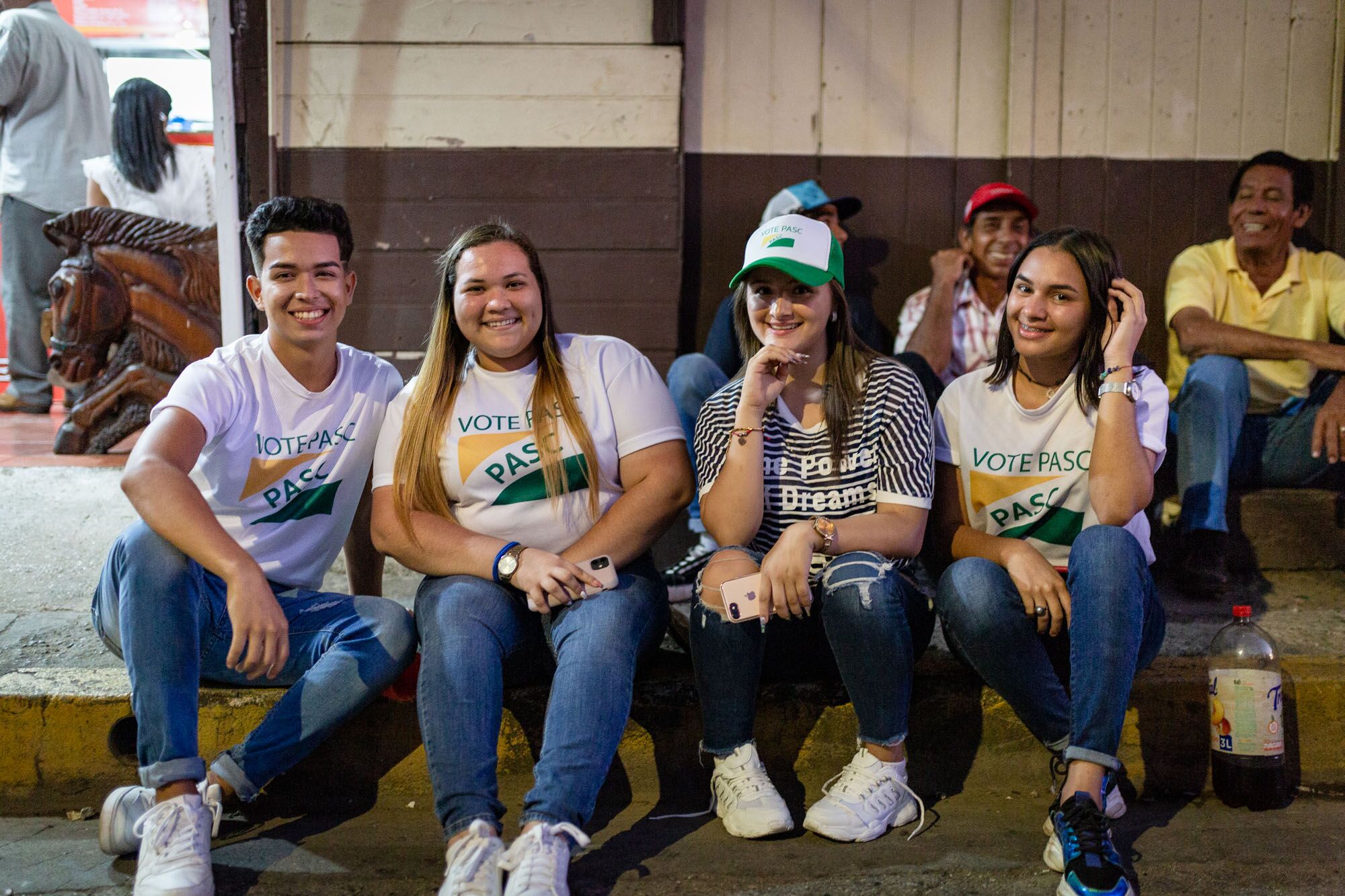
Los voluntarios del Auténtico Santacruceño guiaron durante toda la jornada a los futuros electores hacia las urnas.
A local party also defeated National Liberation in Santa Cruz, despite the fact it provided 210 cars to take voters to voting booths, according to former candidate Iván Ramírez. Highschool principal Jorge Arturo “Gallo” Alfaro, of the Authentica Santa Cruzan party (PAS) was responsible for defeating PLN.
“We didn’t have money, but we had grit,” Alfaro told GuanaNoticias website. The PAS party won nearly 5,000 votes to PLN, which came in second, with some more than 3,000.
In Liberia, former mayor Luis Gerardo “Pipo” Castañeda from PUSC, snatched the victory to Alejandra Larios of the PLN by 172 votes.
With the results from Liberia, Santa Cruz and Nicoya, PLN loses control of three of the cantons with the largest budget in Guanacaste (some $19 million per year in Liberia, $11 million per year in the case of Nicoya and $17 million in Santa Cruz).
Santa Cruz also has the longest commercial coast in the province, with 59 miles of shoreline.
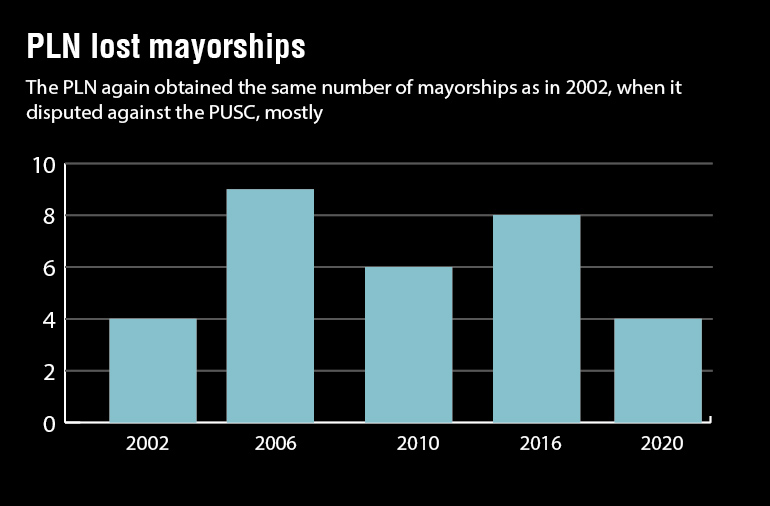
In Bagaces, the battle was close, but PUSC’s Eva Vásquez beat PLN’s candidate by more than 500 votes and PAC’s nominee by 200. As of vote counts by the time this newspaper went to print, Vásquez would be the only female mayor in Guanacaste and the first woman to hold the post in Bagaces.
But the PLN consolidated its mandate in four cantons (of the six that it formerly had), including : Abangares, Cañas, Tilarán and Carrillo. In the last three, its mayors won re-election and in Carrillo, Mayor Carlos Cantillo was elected to his fourth consecutive term. He’s been the head of the local government since 2006 and had more than 5,000 in the latest vote count.
“We are certain of victory, and it’s a convincing victory,” Carillo said several hours before the results were in.
In Cañas, Luis Fernando Mendoza beat his nearest opponent from the United We Stand Party (PUP) by more than 3,000 votes. PUP only had 900 votes as of the latest count.
Mendoza’s victory wasn’t a surprise for anyone. In the streets of Cañas, rival parties had already recognized they were fragmented, which benefited Mendoza. “We should have formed a coalition, but we weren’t able to,” said PUSC’s candidate for deputy mayor Jorge Ulate.
In La Cruz, candidate Alonso Alan of the New Generation Party broke two-party rule in the district. He beat incumbent Junnier Salazar, who was seeking a second term, by one percentage point.
“This canton, in its 50 years of history, had never supported a team that wasn’t PLN or PUSC, and that gave me leverage,” he told The Voice of Guanacaste shortly after preliminary results showed him winning.
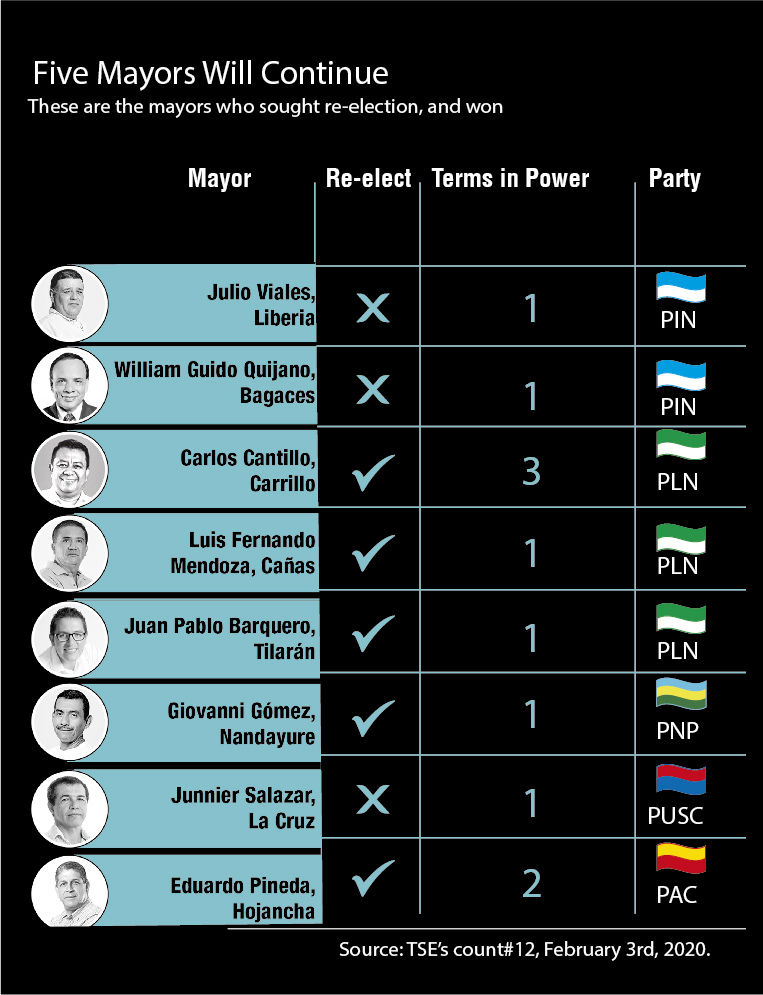
Evangelical Defeat
As in the rest of the country, the evangelical parties National Restoration and New Republic only won enough votes to elect a few representatives in the province. In Cañas, Mendoza predicted this result at 2 p.m., when he said in an interview with The Voice that the Evangelical vote was very divided.
“I have a representative who is a pastor at the oldest church in Cañas, La Bíblica de Sion, the Together We Stand party takes a deputy mayor who is a girl from that same church,” mayor Mendoza said outside Monseñor Luis Leipold school.
“I’m an evangelical and I have a lot of people from the church supporting me,” said Carrillo mayor Carlos Cantillo.
In districts like Carmona in Nandayure, National Restoration set up a tent with two people and New Republic had another two sitting on small stairs near a pipe. It was a common scene in other cantons. Outside the Aplicación School in Liberia, the wind blew down the New Republic tent, which had two volunteers in it.
– “Who is running for mayor from your party?” we asked the volunteers.
-“Fabricio Alvarado,” rushed to respond one of them, who, after a few seconds, said “Ah, for mayor? Betty Lisseth Jiménez”. Fabricio Alvarado is the former presidential candidate and was the first person from an evangelical party to get to the second round.
Jiménez won just 800 votes in Liberia, finishing eighth. In Nicoya, Fabricio Alvarado’s party also finished in eighth with fewer than 500 votes.
One City Hall Fewer for Women
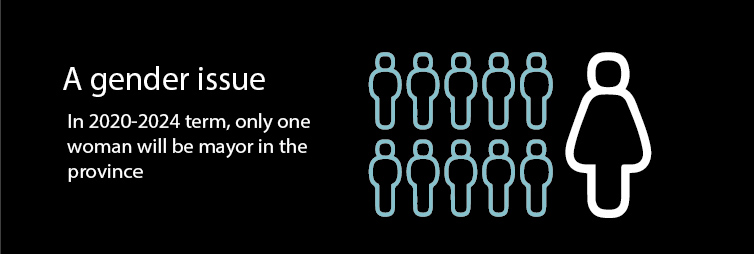
Alejandra Larios was a favorite to win in Liberia, but Luis Gerardo “Pipo” Castañeda, a candidate from the traditional Social Christain Unity Party, might have ended up winning, according to the last vote.
Jennifer Arnáez of the PLN was also one of the favorites for Nicoya City Hall. The party provided more than 100 vehicles to transport voters and had at least 1,000 volunteers throughout the canton.
The candidate spent the entire day visiting each voting center in each district for at least ten minutes. This made her almost invisible in the central district, where she lost to the Great Nicoya party by the largest margin.
Historically, the greatest number of women who have been mayor at the same time in Guanacaste was in 2016, when two led city halls. Both were from the National Liberation Party and represented Santa Cruz and Abangares, which, as of May 2020, will have a man as mayor.
In 18 years, only four women have reached the top of city hall in Guanacaste, versus 40 men in the same period.
Julián Zamora Mora, Krissya Méndez Ramírez and Alonso Martínez Sequeira contributed to this report.


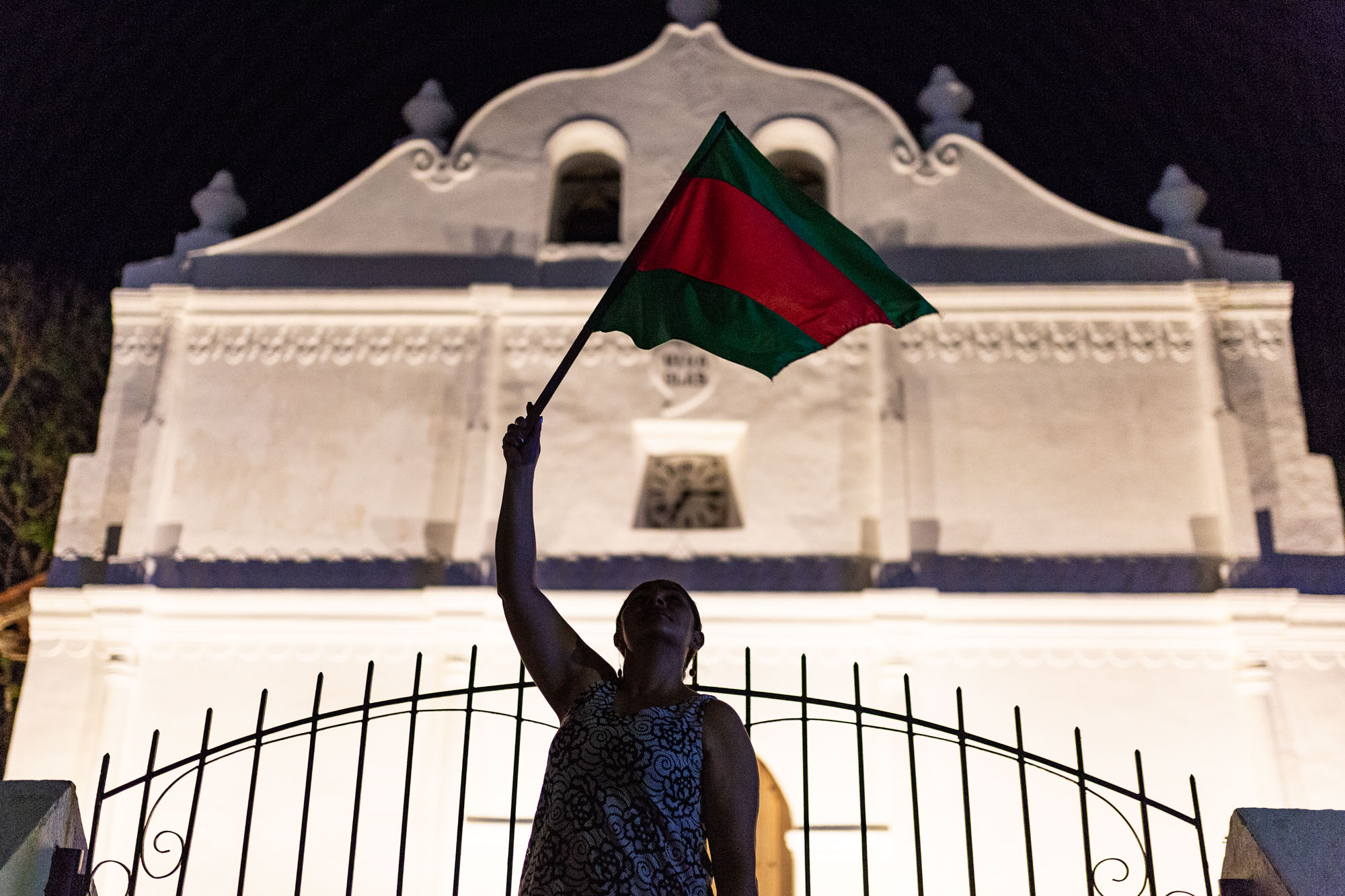
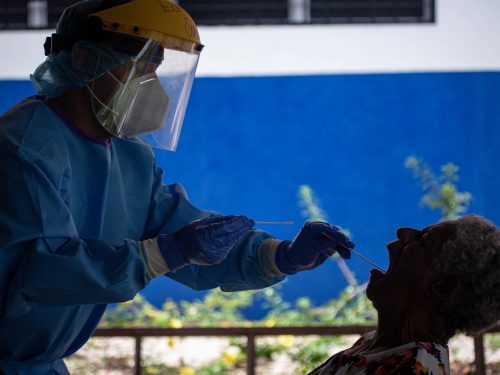

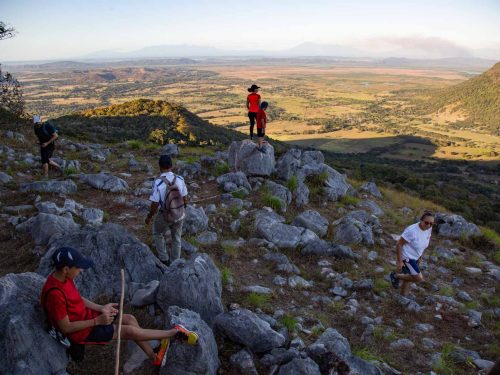

Comments